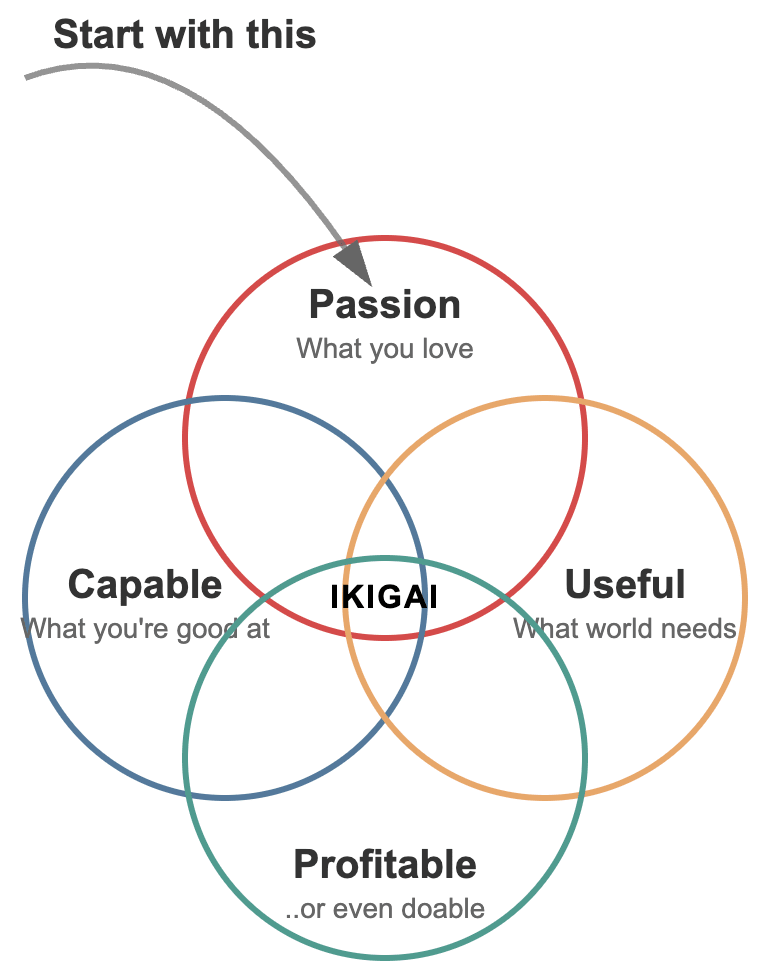New Comment
Interesting! While PHDing, I did my best work after accumulating a large bench of tractable ideas and a large bench of interesting ideas, and then subconsciously searching all NxM pairs to see if they were bridgeable- (this bridging step started to feel pretty magical as it worked)
Ah- although, much of the bench of feasible ideas came from reading papers, and then replicating them, which is much more efficient at picking actually feasible ideas than having them myself

When looking for new project that is both interesting and tractable, aim for interesting ideas first and only then filter them for tractability - not the other way around!
Here interesting is relative to whatever ambitious goal or metric you have, and tractable can mean realistic, practical, affordable or something else.
This advice might seem intuitive or obvious to you when stated plainly like this, but the converse is a bane of coming up with good project ideas. I have seen it done the wrong way around countless times among researchers (research project or thesis selection based on available data rather than a goal), EA groups (forever leveling up with tractable projects), friends (career choices based on current skills, selecting gifts by availability or price first, ...), and myself (all of the above).
The asymmetries
Where does the asymmetry between interesting and tractable come from? There are a few mechanisms:
I. Finding interesting ideas is usually harder than finding tractable options just because there are fewer of them in any given domain. Filtering for the rarer property first is a basic lesson even in algorithms and databases[1].
II. It is often possible to make an untractable interesting idea more tractable at the cost of some interestingness - scale it down, make an MVP, make a project proposal. Making a tractable low-interestingness idea more interesting is usually much harder - you'll likely need other methods than scaling or polish.
III. Working with a scaled-down project has additional benefits: If the scaled-down idea turns out to be successful, you have space to grow it up with more resources. The project will start with higher ceiling - which I and others find very appealing in its own right.
IV. Psychologically, coming up with wacky interesting ideas is often fun and high energy. So Babble and Prune![2]
V. We tend to conservatively underestimate the resources we can obtain for a good project, anchoring at what we have available right now. Interesting projects can attract help or investment, and motivate learning new skills. On the other hand, turning resources into more interesting projects is still a hard problem.
The usual caveats apply: Sampling interesting first is not always better - whether because finding any tractable solution is actually very hard in itself, or because everything in the area seems interesting to you (and moreover tends to drag you into rabbit holes), when scaling down tends to make the solution much less interesting (e.g. losing majority or Schelling point coordination, your models become too toy), when tractability in itself is actually a fun challenge, the tractability is the point (e.g. sustainable work projects to ground yourself a bit; though YMMV), or if you just need something quick and can't spend much time on the search and refinement.
Interesting and tractable are often anti-correlated, so not only do you have to search for both properties, you're working against their natural opposition. The reason we still search for good problems is that there may be non-obvious solutions, whether entirely novel ones, or just ones that are much better than otherwise because of our circumstances or what you consider interesting!
Why not both? and Substitute questions
Why not look for both interesting and tractable ideas at once? Unless you have a lot of experience in the area, your mind simply does not know how to look for both at once. Even if you can easily find tractable ideas, and can also come up with interesting ideas, this does not mean your mind knows how to search for the conjunction of the two properties[3].
When drawing a blank on a complex query, your brain is usually going to ask a substitute question instead - that is, a more-or-less related question that is easier to answer. Here that would naturally be either just "What would be interesting?" or "What would be tractable?" But which one is your brain going to go for? Well, usually the easier one (availability bias hits again!), so probably tractability. To be fair, it will still try skewing the sampled ideas in the direction of being relevant and interesting, but on the other hand, we often do not notice that the substitution happened.
The main trap of substitute questions is that the substitution happens subconsciously. Try to notice when you (or your friends or colleagues) are going to do a hard multi-criterial search for ideas and choose how to sample them wisely.
Thanks Anna Gajdová, Vašek Rozhoň, and Claude for proofreading, and Logan Greaves for the title.
Algorithmic aside: This is very common e.g. in databases. Imagine a table with two columns 'age' and 'gender', with an index for each column separately (so no joint index). Searching for a concrete value (37, F) efficiently will first use the index on 'age' to get a set of 37 YO candidates and then scan those for gender 'F', rather than having to scan all people with gender 'F'.
Babble and Prune tl;dr: Generate many wild ideas before pruning them down!
This tends to give the same advice as this and is an awesome thing to do! It describes a bit different part of the puzzle: The order in which you do your multi-criterion search in matters for a wide range of reasons.
I still find this both so obvious and baffling: Our mind is a predictive model of the world that you can query in some ways, you can learn other query types (e.g. do Murphy-Jitsu), and others seem just hard (conditioning on outcomes, conjunctions, and others).